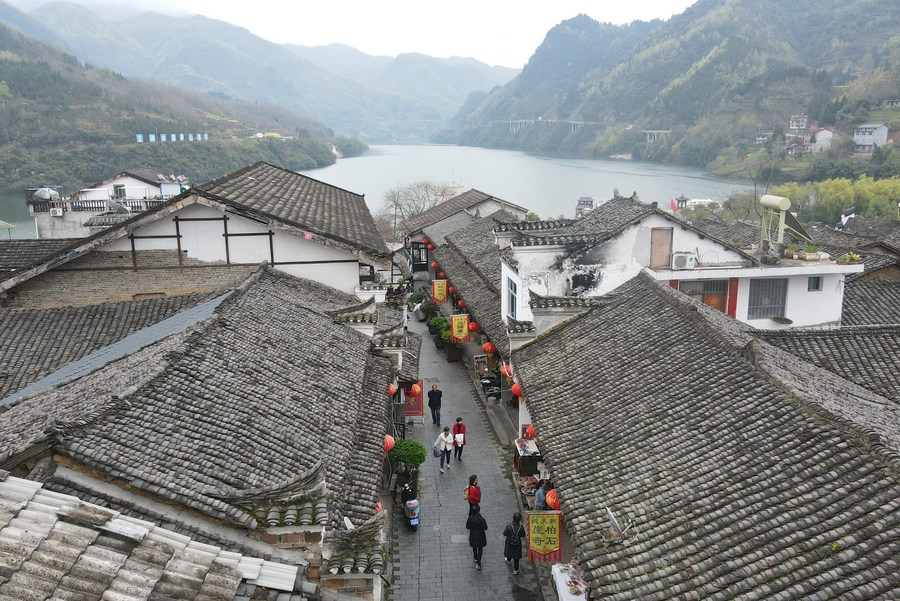By Julia Pierrepont III
CLAREMONT, the United States, May 30 (Xinhua) -- China's development model has offered countries "visions of a truly postmodern civilization," pundits said at the recently concluded 14th International Forum on Ecological Civilization.
The annual event, hosted by Claremont Colleges, a consortium of seven private institutions of higher education, is one of the largest forums on ecological civilization in the world, drawing together creative academics, activists, artists, non-profit leaders, and governmental officials all dedicated to ecological civilization.
During this year's six-day online forum, participants focused on finding sustainable solutions that not only address environmental degradation, social inequity, and toxic industrialization, but also their underlying causes.
The exploitation of people and the planet for profit, power by multinational corporations and unsustainable growth has resulted in an unprecedented concentration of wealth, systemic racism, and a toxic planet, experts warned.
"Everyone needs to eat," Gaoming Jiang, Professor of University of Chinese Academy of Sciences and former Deputy Executive Director of China Biodiversity Conservation and Green Development Foundation told Xinhua Saturday. "Yet industrialized farming, toxic chemicals and soil depletion put the well-being of future generations at risk."
He pointed out that true ecological civilization required regenerative agricultural systems that combine ancient, indigenous and new sustainable practices that prioritize biodiversity, soil health, rural revitalization, and adhere to the 6 no-no's of ecological agriculture: no chemical fertilizers, no herbicides, no pesticides, no plastic film, no hormones, and no genetically modified organisms.
Participants explored current economic and fiscal policies designed to enhance economic opportunities, socio-political balance and agricultural techniques that do not require the unsustainable exploitation of the planet.
In China, the "Love Your Home Village" movement was gathering momentum and government policies were prioritizing opportunities that enable young people and farmers to make more money without leaving the countryside, Sit Tsui, Associate Professor, Institute of Rural Reconstruction of China Southwest University in Chongqing said.
"We work with local governments and villages to help improve fair-trade practices for farmers and raise their standard of living using community collectives and co-ops, so they can sell their goods for higher prices," explained Tsui.
Wen Tiejun, executive dean of the Institute of Advanced Studies of Sustainability of Renmin University of China, told Xinhua that Rural Revitalization movements are the basis for creating a true ecological civilization.
"Now China's industry is turning from overseas markets to servicing local demand. This will reduce large imports, energy consumption and raw material requirements too," he said.
David Bollier, author and co-founder of the Commons Strategies Group, an international activist and research platform driving collaboration to foster the growth of the commons and commoning projects around the world, believed that local communities would be the driver of change toward ecological civilization.
"With local sub-systems, there's greater room for change, experimentation and innovation," he said.
"In the field of thought, China is offering us visions of a truly postmodern civilization, one that thoughtfully integrates a great and ancient culture with the best of modern science and a passion to heal the wounds that modernity has caused," said John Cobb, founder and director of the Cobb Institute for Ecological Civilizations and founding president of the California-based Institute for Postmodern Development of China, a U.S. think tank and non-profit organization.
"Solutions for an ecological civilization must come from within," said Wm. Andrew Schwartz, Executive Director of the Center for Process Studies. "It will require unprecedented collaboration -- all of us working together with a shared vision for a better tomorrow." Enditem




 A single purchase
A single purchase









